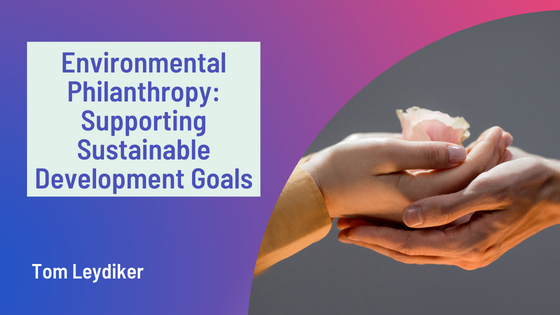Environmental philanthropy plays a critical role in addressing some of the most pressing challenges of our time, including climate change, biodiversity loss, and sustainable development. Philanthropists have the power to protect our planet and support the United Nations’ Sustainable Development Goals (SDGs) by allocating resources towards environmental causes.
Supporting Sustainable Development Goals (SDGs)
The SDGs provide an integrated blueprint for creating a better, more sustainable, and fairer global landscape by the year 2030. Environmental philanthropy directly supports several of these targets, e.g., clean water and sanitation (Goal 6), affordable and clean energy (Goal 7), sustainable consumption & production (Goal 12), & climate action (Goal 13). Philanthropists can help to avert the losses caused by climate change through supporting initiatives that focus on these areas.
Creative Solutions to Environmental Issues
Among the important impacts of environmental philanthropy is the capacity to finance creative strategies towards environmental problems. This includes investments in renewable energy projects, support for conservation initiatives, and endorsement of sustainable farming methods. These investments not only help towards environmental sustainability but also bring about economic and social benefits, which are indicative of the interlinkages of SDGs.
Building Partnerships for Greater Impact
The complexity of environmental challenges requires a collaborative approach. Environmental philanthropy often catalyzes partnerships between governments, private sector entities, NGOs, and local communities. These partnerships are essential for scaling up successful initiatives and ensuring efforts align with the global agenda for sustainable development. By working together, stakeholders can leverage their strengths and resources for a greater collective impact.
Empowering Communities and Fostering Resilience
A key aspect of environmental philanthropy is to enable communities, particularly the most vulnerable, to tackle the effects of climate change. Supporting projects that enhance resilience, such as sustainable livelihood initiatives and disaster risk reduction strategies, ensures that communities can better withstand and recover from environmental shocks. This community-centered approach addresses immediate needs and contributes to long-term sustainability.
Philanthropy plays a crucial role in achieving the Sustainable Development Goals. Philanthropic efforts in the environmental sector can create positive change through innovative funding, strategic partnerships, and community empowerment. As we move closer to the 2030 deadline for the SDGs, the role of environmental philanthropy will only grow in importance, underscoring the need for continued investment and collaboration in the pursuit of a sustainable future for all.







